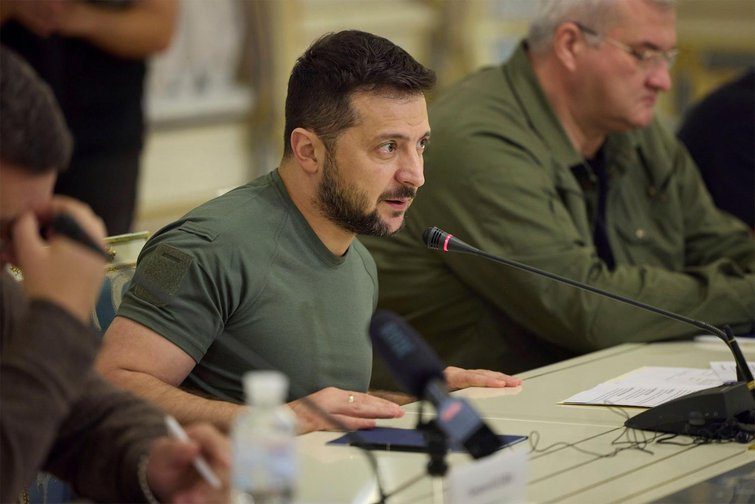It was an inauspicious location for the signing of one of the most fateful agreements in the history of modern Ukraine.
On 5 December 1994, Ukraine’s second independent president, Leonid Kuchma, met Russian president Boris Yeltsin, US president Bill Clinton and British prime minister John Major at a business center in Budapest. They signed a memorandum on security assurances, which seemingly guaranteed the “independence and the sovereignty of the existing borders” of Ukraine. It promised that none of the signatories’ weapons “will ever be used against Ukraine, except in self-defence”.
At the time, Ukraine had the third-largest number of nuclear weapons in the world. The Budapest memorandum committed Kyiv to nuclear disarmament in exchange for financial compensation and that non-aggression pledge. By 1996, the last of Ukraine’s nuclear warheads had been sent to Russia for dismantling.
Nearly 30 years later, the Ukrainian negotiators appear naive.
A 1993 options paper prepared by Ukraine’s Ministry of Foreign Affairs says that if the country gave up nuclear weapons and signed a deal like the Budapest memorandum, its “level of security [would increase] substantially”. As a result of the guarantees, the paper said, the “threat of a first nuclear strike [from nuclear powers] disappears”.
For Ukrainians, the Budapest memorandum has been tragic.
The US State Department insisted the security promises be called “assurances” rather than binding guarantees and they have proved to be neither an assurance nor a guarantee. In fact, they were all but worthless when Russia invaded Crimea and then Donbas in 2014.


Comments
We encourage anyone to comment, please consult the oD commenting guidelines if you have any questions.